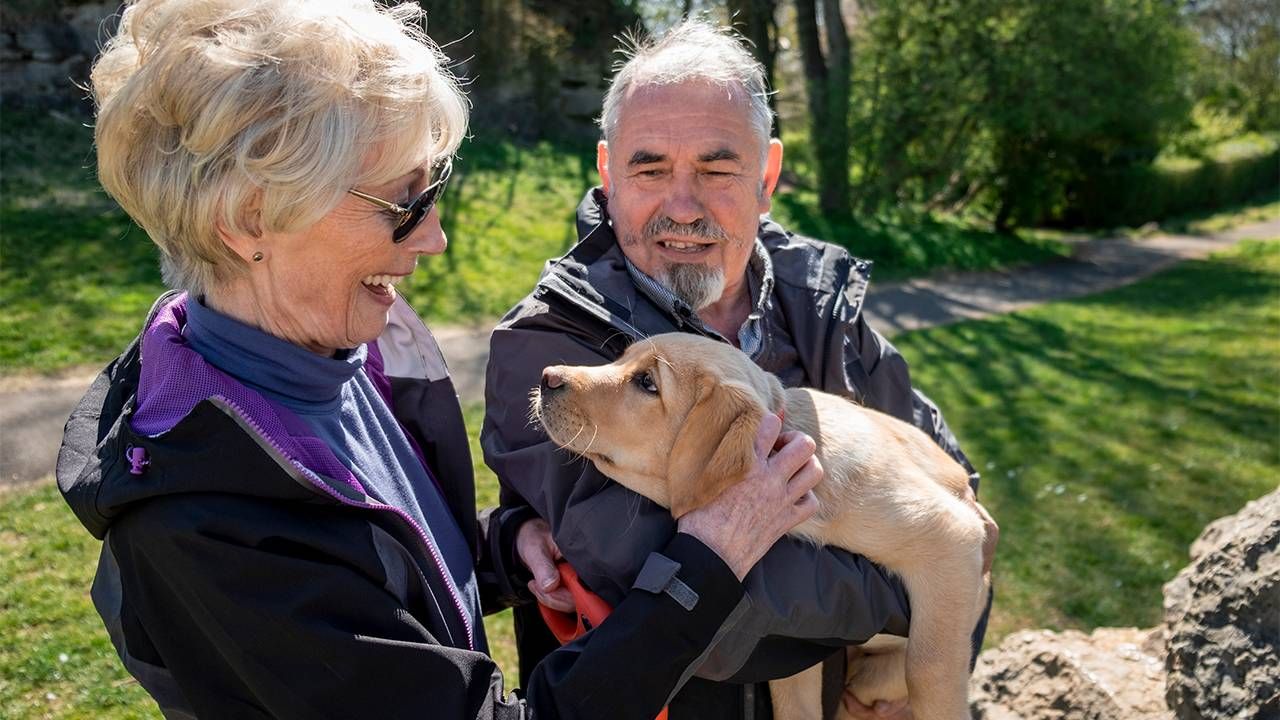What's Love Got to Do with Mental Health?
Love, friendships and other forms of connection are vital for our well-being as we age
Can we live on love? No, but it actually makes life more healthy.
In cases where older persons have no meaningful connections or support, their mental health can decline and can even trigger behaviors that can affect their physical health. Loving relationships, and even brief social interactions, can reduce loneliness and improve the health and longevity of the aging population.

"Human beings are social animals. We thrive in connection. And positive relationships can lead to better health and longevity," says Lonnie Barbach, clinical psychologist and author of "Going the Distance: Finding and Keeping Lifelong Love."
"We thrive in connection. And positive relationships can lead to better health and longevity."
Barbach continues, "Left too much alone, most people will feel depressed which can lead to a compromised immune system and poor health."
"First, we have to recognize that love and joy are important," says Anne Sansevero, founder & CEO of HealthSense in New York. "It sounds silly, but sometimes when we are overly focused on health and safety, we forget the importance of connection and creating joyful moments."
A Love Potion for Well-being
Studies have found a connection between having experiences of love and psychological well-being later in life. Loving relationships, including sexual or romantic connections, can even lead to a significant reduction in depressive symptoms, and can play a vital part in the well-being of aging adults.
"The feeling of a loving connection directly affects the mental health of an older person," Sansevero says. "Studies have shown that human connectivity increases longevity, strengthens the immune system and lowers depression and anxiety. I have also witnessed that couples that have a loving relationship report less depression and anxiety — they lift each other up and compliment each other. There is a security between them and a bond that increases resilience and optimism and overall engagement with their community."
Love ignites a flame in the brain's pleasure centers, turning on the neurotransmitter dopamine, which can even cause a feeling of euphoria. One study examined MRI scans performed while people looked at photos of their romantic partners, and several areas of the brain literally became flooded with dopamine.
But when couples are together for some time, other neurochemicals are released, including oxytocin — a chemical that causes bonding between mother and child. This bonding hormone continues to be released when couples share activities, hug, or hold hands. They develop a trusting relationship with each other that is important to our primitive instinct for survival.
Oxytocin raises immune function, and couples tend to live longer, have fewer health issues such as strokes and heart attacks and have a lower risk of depression.
Connections with Friends are Significant
You may not have a significant other, but you can still kickstart the chemical benefits of love. Any positive relationship can boost your mental well-being and bring joy into your life.
"Connection does not have to be in the form of a romantic partnership, although that is very common," says Barbach. "The same form of support and connection can be achieved through friendships."
One Harvard study conducted since 1938 has followed the lives — and loves — of 268 Harvard sophomores. Only a handful of the original participants are still alive, but the study continues to this day. Scientists have expanded it to include their descendants, discovering how life experiences affect mental and physical health.
Dr. Robert Waldinger, clinical professor of psychiatry at Harvard Medical School, explained in an article in the Harvard Gazette that "our relationships and how happy we are in our relationships has a powerful influence on our health. Taking care of your body is important but tending to your relationships is a form of self-care, too. That, I think, is the revelation."
The long-term study found that success in the form of fame or wealth were not as important to overall happiness as were close relationships. Those connections seemed to be key to the delay of mental decline and pointed to longer and happier lives.
"[The importance of loving relationships] does not play enough of a role in our approach to mental health."
Even having a pet can help, as other studies have indicated. "In my practice I have seen the beneficial effects of pet therapy with better mood and less anxiety," says Sansevero.
In fact, the same relationship chemicals, dopamine and oxytocin, are produced when humans interact with their pets. While pets are not a replacement for human love and social interaction, their presence and unconditional love and loyalty can ease loneliness, offer solace and give someone a sense of purpose.
Relationships as a Factor in Health Care
Addressing the benefits of loving relationships could play a part in how organizations manage the mental health of aging populations.
"[The importance of loving relationships] does not play enough of a role in our approach to mental health," says Sansevero. "However, [we] are seeing the value and benefit that engagement brings to overall mental health."
Sansevero implemented a program called MindSense to complement her care management practice and to address social isolation, as well as its ill effects on the mental and physical health of older adults.
"Cognitive enrichment, engagement and mindful social connection are powerful underutilized tools that can have very beneficial results. Make the time to understand what brings joy to an older person," says Sansevero. "Sometimes it's the simplest of things."
Give Yourself a Mental Health Boost by Connecting
Barbach encourages social interaction of any type, for any age group, to bolster mental health.
"I don't think the salient factor is about the number of years a person is alive, but rather, how much they are enjoying the lives they are living," she says.
Here are five suggestions on ways to connect for better mental health:
- Call a friend you care about but haven’t talked to in a while.
- Pursue a friendship with someone you have recently met and who seems interesting to you.
- Offer your support to others who are in a difficult emotional situation in their lives.
- If you are single and desire a new love, don’t shy away from saying yes to someone you meet whom you find appealing rather than thinking you are too old or too afraid of getting hurt. Or reach out and give a dating app a try.
- If you find a relationship with another human being too difficult or complicated, consider getting a dog, cat, or other pet. The love you give or get from an animal can also offer joy and be life affirming.


